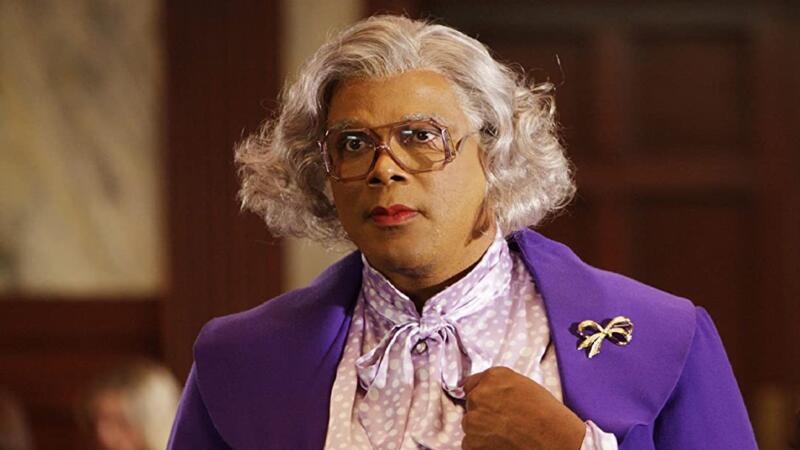Tyler Perry has admitted that for years he’s had uncomfortably with playing Madea.
He opened up about it in an interview with Chris Wallace, a former Fox News journalist, has now made the leap to CNN with his new show, Who’s Talking to Chris Wallace?.
In the episode, Wallace talks to Perry, who talks about all parts of his life, including his upcoming film A Jazzman’s Blues, past abuse at the hands of his father, his friendship with Oprah Winfrey, and his strong stance on Madea, saying he’s “extremely uncomfortable” playing the character.
"I've always been extremely uncomfortable in that suit and playing the character but the audience loves it so much," he said.
“I was gonna do it for one little scene on stage and the lead character didn’t show up. So the character got bigger and bigger every night and that’s where it all started. I’m not denying that it’s great and funny. I enjoy it but again I have to disassociate that’s actually me.”
Wallace voiced what a lot of Madea fans might think. "For somebody who's a little embarrassed or uncomfortable with Madea, you’ve been playing her for 15, how many years?" he asked.
Perry responded, “2009, I think. But here’s the thing, the audience won’t let her go. Like even the last time I did it, I said I’m out, I’m not doing it anymore. And then the world goes upside down, we have a president and a new president. So I wanted to make people laugh. So I said what do I have? Pull her out, put the movie on Netflix. It’s number one everywhere. (Yes, it’s great) But the minute people stop coming to see her, that old broad is dead. She’s dead, for sure.”
Perry also discussed the criticism he received earlier in his film career concerning Madea.
“You had to deal with this [criticism] at some point. When Madea first started first came out, Spike Lee called it “coonery buffoonery.” And and over the years have been a number of people who say that you’re playing with negative stereotypes of black men and black women,” said Wallace, with Perry adding that he had been accused of emasculating black men.
"There's a certain part of our society, especially Black people in the in the culture that…they look down on certain things within the culture. For me, I love the movies that I've done because they are the people that I grew up with that I represent and they, like, my mother would take me in the projects with her on the weekends, she played cards with these women," he said
“Most of them have a 12th grade education, but their stories and how much they loved each other and how when they get sad about something and others would come in and make a joke. I’m five years old on the floor with my Matchbox cards. I was in a masterclass for my life. So when someone says this…you’re harkening back to a point of our life that we don’t want to talk about it.”
"We don't want the world to see you're dismissing the stories of millions and millions of black people. And that's why I think it's been so successful because it resonates with a lot of us who know these women in these experiences and Uncle Joe and so on and so forth," he continued.
“But it also goes back to the Harlem Renaissance and Langston Hughes and Zora Neale Hurston, Langston Hughes said that Zora Neale Hurston was a new version of the Darkie. Langston was northern, very sophisticated, Zora Neale from the South. Her character spoke in a southern dialect. So this is a conversation that’s been going on long before Spike Lee and Tyler Perry. It is what it is. But what is important to me is that I’m honoring the people that came up and taught and and and made me who I am.”

